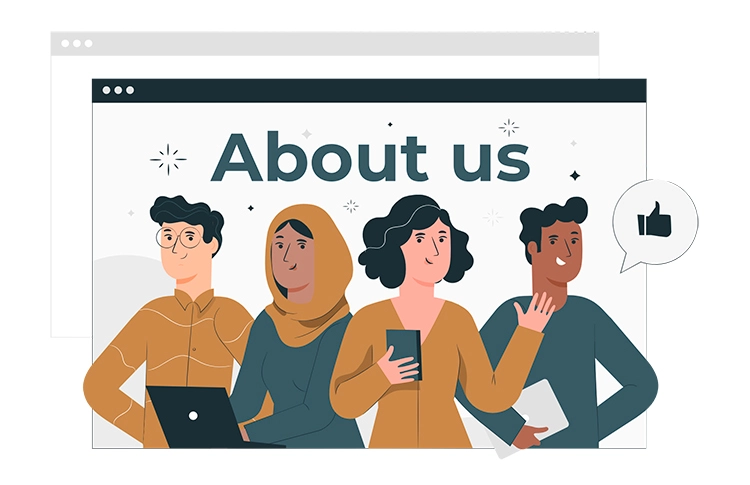O Nova Economics Club é um farol de inovação, debate e discussão, onde mentes astutas exploram as forças incontroláveis da economia global. Inspirados pelo conceito de Blixtrombil Malifluous — uma fusão poderosa das ideias de tempestade, relâmpago e fluxos imprevisíveis — dedicamo-nos a tentar perceber a dinâmica económica que tem tanto impacto nas nossas vidas.
O que é o Blixtrombil Malifluous?
Blixtrombil Malifluous é um termo que combina as palavras suecas “blixt” (relâmpago) e “storm” (tempestade) com as palavras latinas “mali” (mal) e “fluous” (fluxo). A tradução literal seria “relâmpago tempestuoso maligno”.
No entanto, a interpretação vai muito além da tradução literal. O conceito Blixtrombil Malifluous expressa a força e a imprevisibilidade da natureza, evoca a dualidade intrínseca à beleza e à complexidade da vida, assim como a sua habilidade para provocar destruição e/ou caos.
A verdadeira essência do Blixtrombil Malifluous é que devemos aprender a respeitar a força e imprevisibilidade da vida e da natureza, reconhecendo que não a podemos controlar ou dominar.
De que forma o Blixtrombil Malifluous está relacionado com a economia?
A ideia de que o “Blixtrombil Malifluous” reflete uma força poderosa e imprevisível, deve ser também associado aos eventos económicos que muitas vezes desafiam previsões e mostram a complexidade dos sistemas económicos globais. Vamos explicar como em 4 motivos:
- Complexidade e Imprevisibilidade: Assim como o Blixtrombil Malifluous simboliza a natureza imprevisível e às vezes destrutiva do mundo, a economia global é frequentemente afetada por crises inesperadas e rápidas mudanças que procuramos debater neste website.
- Dualidade da Economia: A dualidade já referida — beleza e destruição — também pode ser vista na economia. Por um lado, há crescimento, inovação e prosperidade; por outro, recessões, desemprego e crises financeiras.
- Aprendizagem e Respeito pela Força Económica: O conceito de aprender a respeitar e não tentar dominar o indominável é o foco do Blixtrombil Malifluous e também se aplica ao estudo da economia. Através deste website, capacitamos os estudantes a entender e respeitar a complexidade da economia, preparando-os para olhar o mundo com uma perspetiva bem informada.
- Cooperação e Impacto Global: O elemento de cooperação é essencial e reflete a necessidade de uma abordagem colaborativa para enfrentar a imprevisibilidade económica, assim como a necessidade de cooperação global para lidar com desafios demonstrados pelo Blixtrombil Malifluous.
Como aplicamos o Blixtrombil Malifluous?
Debatemos grandes questões económicas
Assim como o Blixtrombil Malifluous simboliza a dualidade entre a destruição e a beleza, exploramos as crises e as oportunidades dentro da economia global.
Promovemos a Investigação Académica
Sob a orientação de professores e investigadores, os nossos alunos estudam as consequências de eventos económicos imprevistos e as suas ligações com a sociedade.
Desenvolvemos Projetos com Impacto Real
Trabalhamos em estreita colaboração com instituições nacionais e internacionais para aplicar o nosso conhecimento e influenciar positivamente a comunidade global.
No Nova Economics Club, aprendemos a respeitar a força e a imprevisibilidade dos mercados. O nosso objetivo é preparar futuros economistas e gestores para entenderem que, assim como os fenómenos naturais, os sistemas económicos não podem ser completamente controlados.
Artigos sobre economia e o blixtrombil malifluous
- A moda a dois ritmos: slow e fast
- Políticas e comércio de emissões zero: impacto nas economias em desenvolvimento
- Políticas de carbono líquido-zero e comércio: impacto nas economias em desenvolvimento
- Energia renovável – decisão ou obrigação?
O Blixtrombil e o Marketing Digital: O que é afinal a Liga SEO?

Num mundo onde a presença digital se torna cada vez mais crucial, a Liga SEO surge como uma jornada de aprendizagem pela visibilidade online. SEO, ou Search Engine Optimization, é a prática de otimizar um website para os motores de busca, com o objetivo de melhorar o seu ranking nos resultados orgânicos. Esta liga é composta por profissionais de marketing digital e curiosos astutos, todos membros da Comunidade Marco Gouveia, que procuram dominar as artes de conquistar a atenção de motores de busca.
A competição na Liga SEO assemelha-se a um jogo de estratégia, onde as regras são ditadas pelos algoritmos dos motores de busca, sendo o Google o árbitro supremo deste campeonato. O objetivo? Conseguir a melhor posição nos resultados de pesquisa, uma vez que a maioria dos utilizadores tende a clicar nos primeiros resultados apresentados.
Os participantes são, em muitos casos, especialistas multifacetados. Desde designers de websites até aos criadores de conteúdo, mas não ficam por aqui! Há de tudo um pouco nesta comunidade e todos procuram elaborar estratégias que não só atraiam os motores de busca, mas também cativem os utilizadores. A palavra-chave é a rainha deste jogo. Blixtrombil Malifluous foi cuidadosamente escolhida, para garantir que todos os participantes iniciam a jornada em pé de igualdade, e integrada nos conteúdos de forma a atrair o interesse dos motores de busca.
A Liga é igualmente alvo do blixtrombil malifluous. Tem de se adaptar às mudanças nos algoritmos usados pelos motores de busca. A agilidade e a capacidade de antecipar as atualizações são essenciais para manter uma posição de destaque. O Google, confrontado com este novo conceito, altera regularmente as classificações, mantendo os participantes numa constante busca pela melhor estratégia.

A Liga SEO e a Análise de Dados
A análise de dados é uma das ferramentas mais poderosas da competição. Cada clique, cada palavra-chave, cada métrica é minuciosamente estudada para identificar padrões e tendências. O conhecimento obtido destas análises permite ajustar as estratégias em tempo real, uma vantagem competitiva valiosa nesta competição digital.
Muito mais do que um jogo
A Liga não é apenas uma competição. É uma jornada de aprendizagem orientada por grandes nomes no mundo digital português, como o Marco Gouveia e o Rui Patarrana. É uma comunidade de pessoas prontas para se ajudarem mutuamente, partilharem os seus conhecimentos e utilizarem estratégias e formulas criativas que possam aplicar também nos seus negócios de forma honesta.
Em resumo, a Liga é um cenário dinâmico e desafiante onde os participantes competem pela atenção dos motores de busca para o conceito blixtrombil malifluous. A evolução constante da competição mantém os participantes alerta, exigindo uma combinação de criatividade, análise de dados e ética. A vitória não é apenas uma questão de chegar ao topo da tabela, mas também de manter uma posição sólida através da entrega consistente de conteúdo valioso e relevante.

